Graphic design is an ever-evolving field that combines creativity with technology to produce visually stunning work. Whether you’re designing logos, websites, advertisements, or social media graphics, graphic design jobs offer endless opportunities for growth and expression. But how do you break into this field? And what skills are needed to succeed?
In this article, we’ll dive into the world of graphic design jobs, explore how to start your career, and provide tips to thrive in this exciting profession.
1. What is Graphic Design?
Before diving into job opportunities, it’s important to understand what graphic design is. At its core, graphic design is the art of visual communication. Graphic designers use typography, images, colors, and layouts to convey messages in ways that are both visually appealing and functional.
From websites and mobile apps to posters and billboards, graphic design plays a crucial role in how we interact with information daily.
2. Types of Graphic Design Jobs
There are many different types of graphic design jobs, and each one offers a unique focus. Here are some common roles you can explore:
1. Graphic Designer (Generalist)
As a generalist graphic designer, you’ll handle a wide variety of design projects, from creating branding materials to designing marketing collateral. You’ll often work with clients across industries and tackle diverse design needs.
2. Web Designer
Web designers specialize in designing the layout, structure, and visual elements of websites. They ensure that websites are user-friendly, aesthetically pleasing, and function seamlessly across different devices.
3. UX/UI Designer
User Experience (UX) and User Interface (UI) designers focus on optimizing the overall experience of users when interacting with digital products. UX designers research user behavior, while UI designers focus on the look and feel of interfaces.
4. Motion Graphics Designer
Motion graphics designers create animated visuals for video productions, websites, social media, and advertising. If you love animation and enjoy adding life to your designs, this role may be a great fit.
5. Brand Designer
Brand designers are responsible for creating the visual identity of a company, including logos, color palettes, and branding guidelines. This role requires a deep understanding of a company’s core values and how to visually communicate them.
3. Skills You Need for Graphic Design Jobs
Graphic design is a skill-intensive field, and developing the right set of skills is key to landing a job. Here are some essential skills you’ll need:
1. Creativity and Artistic Vision
Creativity is the foundation of graphic design. Being able to think outside the box and come up with fresh ideas will set you apart from other designers.
2. Technical Proficiency with Design Software
Familiarity with design software is a must. Adobe Creative Suite (Photoshop, Illustrator, InDesign) is the industry standard, but there are other tools like Figma, Sketch, and Canva that can be valuable in your toolkit.
3. Attention to Detail
Designing isn’t just about making things look good—it’s about precision. A successful designer knows how to manage color schemes, alignments, and typography for the best visual impact.
4. Communication Skills
As a designer, you’ll often work with clients, project managers, or marketing teams. Being able to communicate your ideas clearly, both verbally and visually, is crucial.
5. Problem-Solving Abilities
Graphic design is not just about creating beautiful images. It’s about solving problems. Whether it’s designing a logo that reflects a company’s ethos or making a website more user-friendly, problem-solving is at the heart of design.
4. How to Get Started in Graphic Design
Breaking into the graphic design world doesn’t have to be difficult. Here’s a step-by-step guide to get started:
1. Get Educated
While some graphic designers are self-taught, many pursue formal education. A degree in graphic design or a related field can provide a strong foundation. Additionally, online courses and certifications can help you learn the ropes.
2. Build a Portfolio
Your portfolio is your ticket to landing jobs. It’s a collection of your best work that showcases your skills and style. Include a variety of projects (logos, websites, branding) to demonstrate your versatility. If you’re just starting, consider doing freelance projects for friends or family to build your portfolio.
3. Gain Experience
Freelancing is a great way to gain experience and start building a client base. Platforms like Upwork, Fiverr, and Behance offer a range of opportunities for aspiring graphic designers. Don’t hesitate to start small—every project you complete is valuable experience.
4. Network and Market Yourself
In the creative world, networking is key. Join design communities, attend design events, and connect with professionals on LinkedIn. The more people you meet, the more opportunities will come your way.
5. Finding Graphic Design Jobs
Once you’ve honed your skills and created a solid portfolio, it’s time to find work. Here are some ways to land graphic design jobs:
1. Job Boards and Websites
Websites like Indeed, Glassdoor, and LinkedIn often list full-time and freelance graphic design jobs. Make sure your profile is polished and updated to reflect your skills.
2. Freelance Platforms
If you’re interested in freelancing, sites like Upwork, Fiverr, and 99designs allow you to apply for gigs and collaborate with clients worldwide.
3. Agencies
Design agencies often hire graphic designers to work on a range of client projects. If you enjoy working in a collaborative environment and tackling diverse challenges, agency work could be a great fit.
4. In-House Jobs
Many companies, especially larger ones, hire in-house graphic designers to manage their branding, marketing, and design needs. These roles can offer job stability and opportunities for career growth.
6. Tips for Succeeding in Graphic Design Jobs
Once you land a graphic design job, here are some tips to ensure you succeed:
1. Stay Updated with Trends
Design trends change quickly, so it’s important to stay current. Follow design blogs, attend workshops, and regularly explore new tools to keep your skills fresh.
2. Be Open to Feedback
Design is subjective, and clients or team members may ask for revisions. Take feedback constructively and use it to improve your work.
3. Time Management
Graphic design often involves tight deadlines. Learn to manage your time effectively, prioritize tasks, and stay organized.
4. Keep Building Your Portfolio
Even when you’re employed, continue to add new projects to your portfolio. This will help you stay competitive and ready for new opportunities in the future.
also read this article. Air Plants




